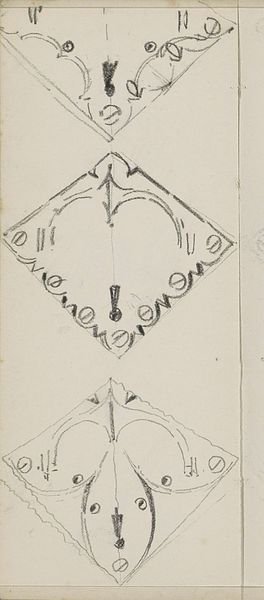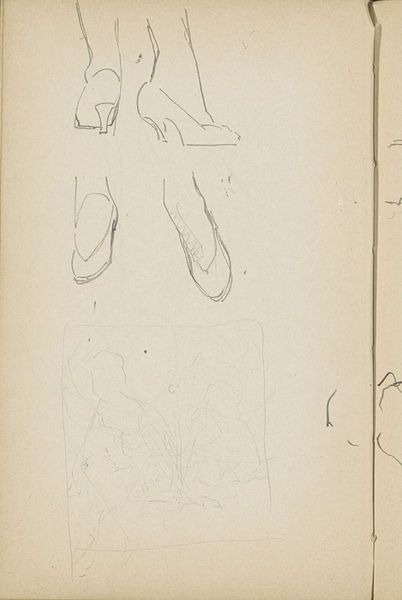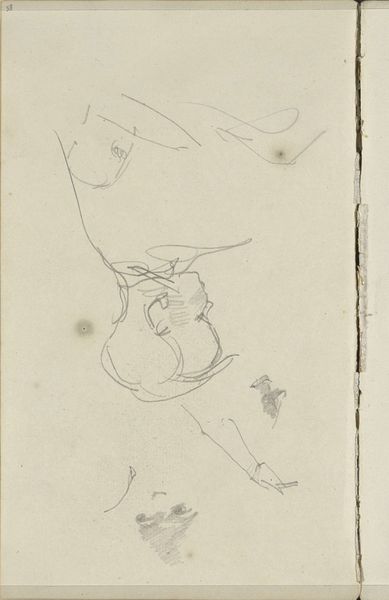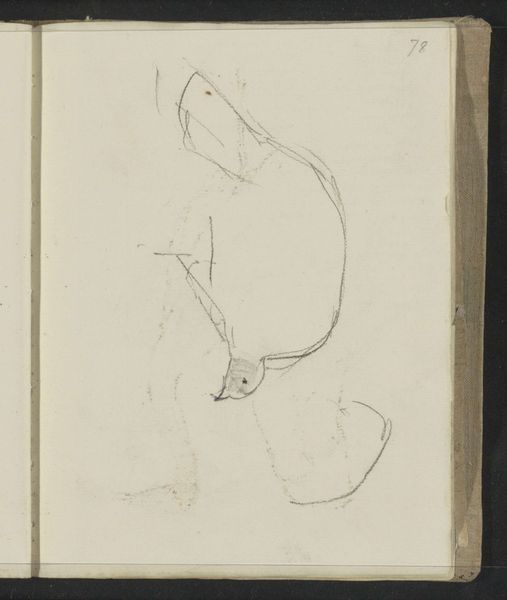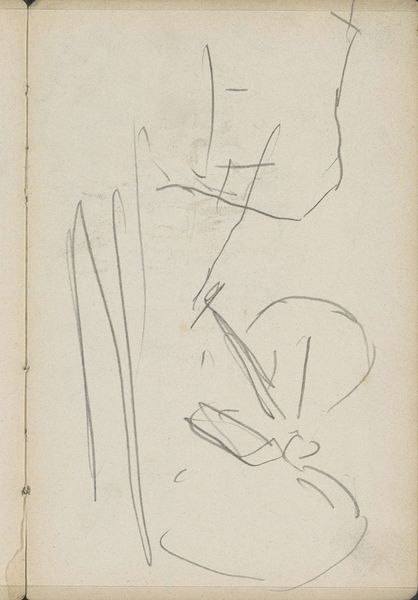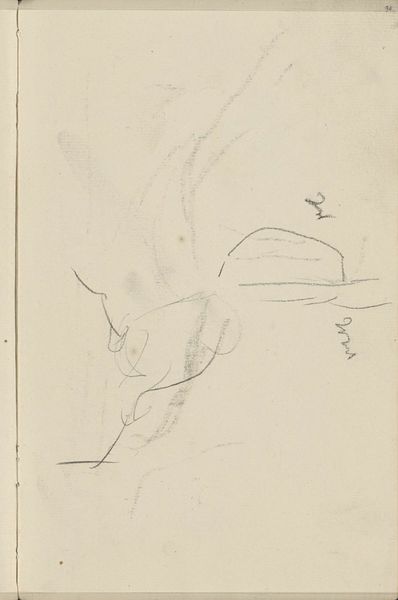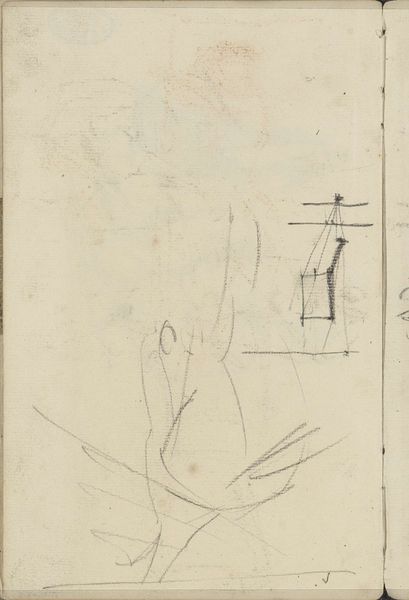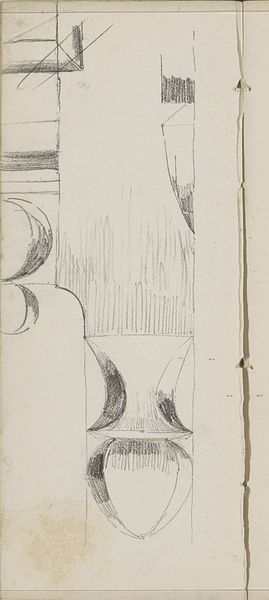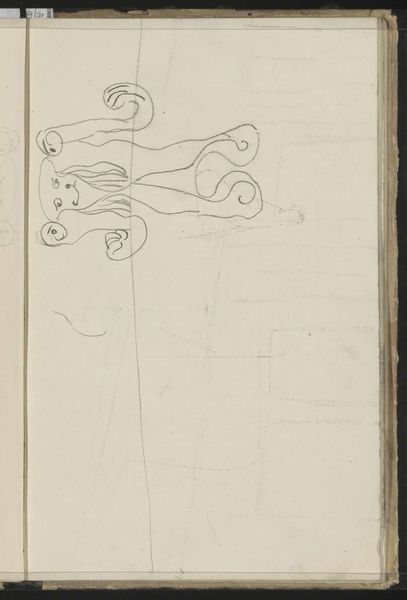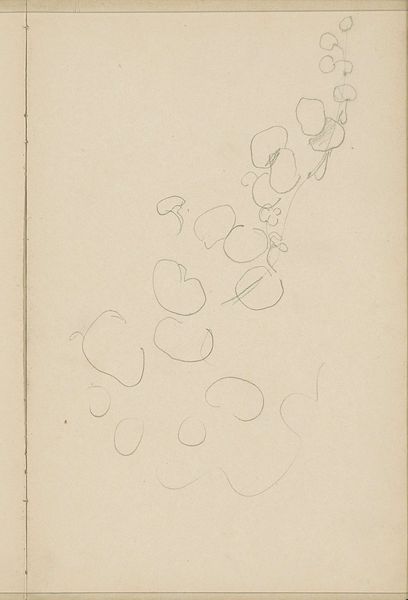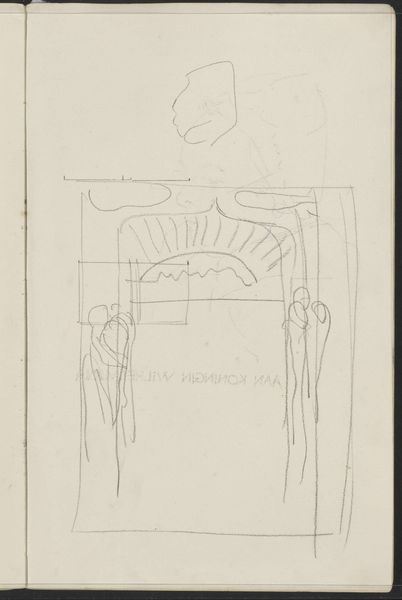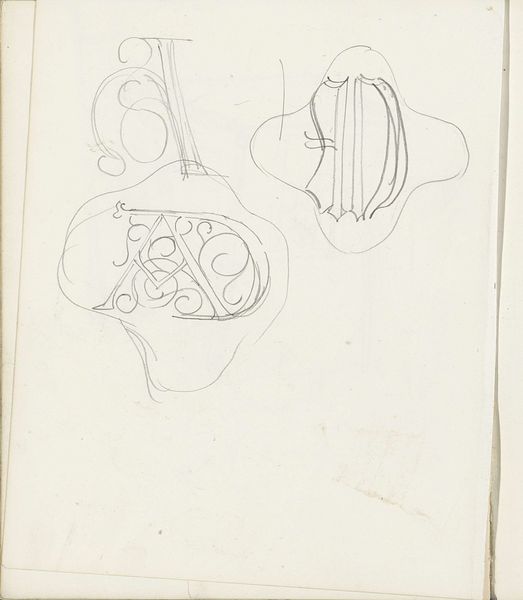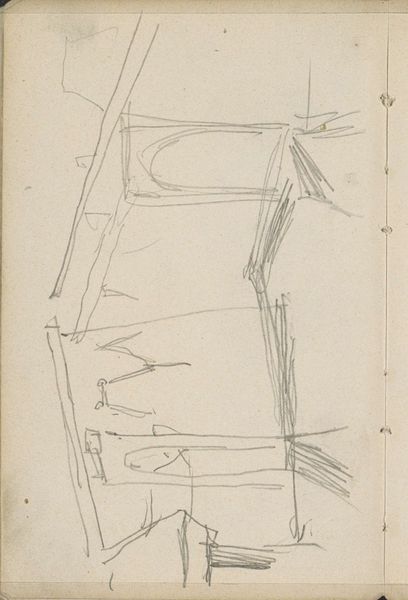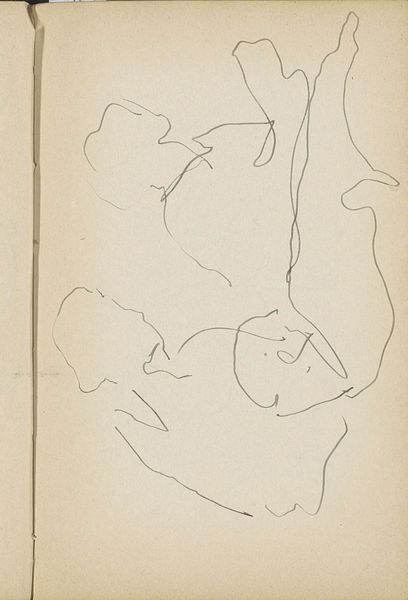
drawing, pencil
#
drawing
#
art-nouveau
#
quirky sketch
#
form
#
personal sketchbook
#
idea generation sketch
#
sketchwork
#
ink drawing experimentation
#
geometric
#
pen-ink sketch
#
pencil
#
line
#
sketchbook drawing
#
storyboard and sketchbook work
#
sketchbook art
#
initial sketch
Copyright: Rijks Museum: Open Domain
Editor: Here we have Gerrit Willem Dijsselhof’s “Ruitvormig ornament,” made sometime between 1876 and 1924. It's a pencil and ink drawing, currently housed in the Rijksmuseum. It's giving me a sneak peek into the artist's mind. What do you see in this piece, with its array of geometric shapes? Curator: From a formalist perspective, the interest lies primarily in the interplay of shapes and lines themselves. The composition displays a hierarchy: the more complex, diamond shape dominates the lower portion of the sketch, grounded by the repetition of curved and straight lines within its form. Above this, simpler geometric forms ascend, losing detail, drawing the eye upwards. Editor: So, it's more about the relationship between the shapes rather than what they might represent? Curator: Precisely. Notice the contrast between the crisp lines defining the diamond and the more fluid, organic strokes used in the upper forms. How does this contrast affect your reading of the drawing? Is the overall aesthetic balance satisfying to you? Editor: I think I prefer the clarity of the diamond. It feels more resolved than the shapes above it, which seem a bit uncertain. Curator: That tension between the defined and the implied is key. The artist experiments with form itself, foregoing narrative for pure visual exploration. These considerations of line, shape, and form generate an aesthetic experience independent of external references. Editor: I never thought about appreciating a sketch in terms of its internal structure before, that's insightful! Curator: Understanding the inherent qualities allows us a richer understanding. Focusing on visual composition and materiality opens the door to appreciation beyond contextual information.
Comments
No comments
Be the first to comment and join the conversation on the ultimate creative platform.
